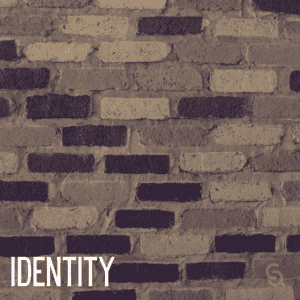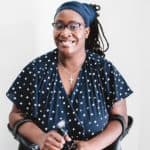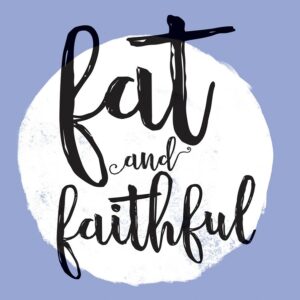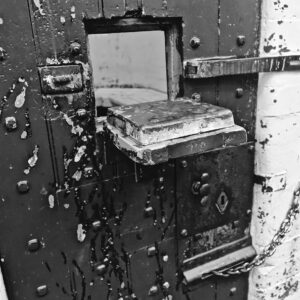 Editor’s note: This article continues a month of focusing on Identity and the stories and histories that we’ve laid claim to that have shaped us. Throughout the month, we invite others to share stories of their own identities. We do so in the hopes of better understanding ours and nurturing greater care and compassion for those who don’t share the same identity. In the end, however, we have our strongest identity in our togetherness—as beloved children of God.
Editor’s note: This article continues a month of focusing on Identity and the stories and histories that we’ve laid claim to that have shaped us. Throughout the month, we invite others to share stories of their own identities. We do so in the hopes of better understanding ours and nurturing greater care and compassion for those who don’t share the same identity. In the end, however, we have our strongest identity in our togetherness—as beloved children of God.
Identity is more than a set of governmental and societal markers that are meant to label and classify human beings like objects. Naming one’s assigned gender at birth, race and ethnicity, country of origin, and ability/disability status is both helpful and harmful when a person’s identity is being formed. Identity is broader than these big bucket categories. It is not static but instead is shaped by pivotal life experiences.
I identify as an African-American woman with a disability. My 38 years of life experience have taught me that society first identifies me as a disability, then as a Black person, and lastly as a woman.
This is more than a game of semantics. It has influenced every encounter I have had since childhood.
To be known as a condition has dehumanized me. This happened first by the medical community and then by the educational system, the church, and the workplace.
I am Cerebral Palsy to my doctors.
I am an educational accommodation when I request extra time on tests or I need a school with an elevator.
I am a liability to pastors and church leaders. (This has actually been said to me. The first time was when I was 11.)
I am higher insurance premiums to employers.
The pandemic has also taught me that I am a pre-existing condition. If medical services are stretched, I may be denied health care in favor of someone else who is deemed healthier than I am.
Then, I am Black—a socially-constructed concept that reminds me once again that I am not human. Structures in society limit where I can live and work, my access to wealth and healthy food, the quality of my education, and where and how I can show up in religious spaces and in the dominant white society as a whole. I have to adapt the way I speak, dress, and wear my hair, and the way I express myself, both verbally and non-verbally.
I can’t be too loud. I have to watch my facial expressions and tone so that I am not perceived as an angry Black person. I am not allowed to be human. The anti-Blackness in our society is palpable. I’m expected to show up in spaces like a robot, so I turn my feelings off.
As a Black woman I am either objectified or invisible. Rarely am I seen as human. There are very few Black women in positions of power, and when they are in power, they are compared to animals or seen as promiscuous, having slept their way to power.
Our pain is not taken seriously, so we learn to grin and bear it. Our pain is a voyeuristic viral loop that becomes a sickening form of entertainment for the masses.
But none of what others have said of me is true.
The hard work of shaping my identity requires first the task of untangling all the myths about who I am. I remember that I am human by constantly telling myself truths: Disability is a natural part of the human experience. Black is beautiful. My natural hair is professional. I can express all the feelings I am experiencing. I am not a machine; I’m human.
I have to remind myself to love the skin I’m in, and that Black women are beautiful and smart—that I am not invisible or an animal, but instead I am a human, worthy of respect and love.
It has taken a lot of therapy and spiritual direction sessions to uncover and live into my true identity. I have embraced seasons of Black anger and Black joy without judging myself. I have come to grips with the harsh truth about the white supremacist society in which we all live and its harmful effects on my self image and the image society has formed of me.
Reconstructing my identity has been a process of recalling both the implicit and explicit lessons of my childhood. I grew up in a home that had African-American art and heroes displayed all over its walls and shelves. My childhood dolls were only Black. My uncle and aunt wanted me to see myself as beautiful and smart and to be reminded daily that I come from a long line of ancestors who were influential and who fought for their own liberation and the liberation of others.
Reconstructing my identity has taken outward expressions as well in the form of poetry, and I have embarked on the spiritual journey of coming home to myself by loc’ing my hair.
Reconstructing my identity as a person with a disability means I have had to remember the times in the hospital in which my friends and I had wheelchair races up and down the hallways. Or when my uncle would spot me as I climbed the monkey bars. When I got to the top, I felt free. My uncle taught me that disability would always be a part of who I am and to find good spotters as I experience the adventures of life. But he also taught me not to let others impose limits on me.
A recent pivotal moment happened in September 2020, when the decision was made not to indict the police officer responsible for the death of Breonna Taylor. I went to bed early that night and stayed in bed the next day. It was a convergence moment. I realized that I no longer felt safe in the body I inhabit. The systematic structures of our society are made to kill people who exist in the world with my intersecting identities and there was no escaping my body, my humanity.
There was much weeping that night, but when I woke up, I was filled with joy! Yes, joy! It was strangely liberating to realize my own mortality. The body I inhabit could get me killed and perhaps no one would be held accountable for my death. But I felt free to live as I was meant to live. Finally, I began to envision myself showing up in every place and space in all of my Blackness, in all of my crippledness, and in all of my femininity. This fills me with joy.
I still don’t always live and behave this way, but when I do, I honor my humanity and am filled with joy anew.
 Rev. Letiah Fraser is a New York City Native who now lives in Kansas City. She is an ordained pastor, an activist/organizer connected with the KS Poor People’s Campaign: A National Call for Moral Revival, a disability rights advocate, a hospital chaplain, and a doctoral student.
Rev. Letiah Fraser is a New York City Native who now lives in Kansas City. She is an ordained pastor, an activist/organizer connected with the KS Poor People’s Campaign: A National Call for Moral Revival, a disability rights advocate, a hospital chaplain, and a doctoral student.


